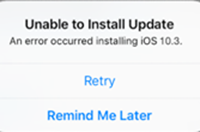Android Data Recovery
Viruses have been an unfortunate part of computer technology for about as long as computers have been around. There’s been a lot of discussion concerning whether our mobile devices can be affected by this type of problem or not. Most of us know by now that yes, our phones and tablets are susceptible to nasty, malicious viruses, but even if you are still skeptical on the topic, isn’t it better to err on the side of security?
As technology gets more and more advanced, so too do the viruses and infections that slink their way into our technological world and cause damage to our electronics and sometimes our lives. It is crucial, therefore, to know how to detect malware in your devices. If you are concerned about the working of your smartphone or other electronics, read this Mobile App Antivirus Guide that includes some of the top names in the game of antivirus and malware detection.
Here’s What We Know
The reality is that mobile malware is out there. Even as far back as 2011, there are known to have been some instances where people were cheated out of large collective amounts of money. There have also been programs launched that gathered user data and passwords. The more advancements we make, the more ways there are for online criminals to infect our devices with malware that can have devastating effects for anyone.
Android Users
Android devices are somewhat more at risk for large-scale malware attacks. Other operating systems have programs in place that make iPhones and Google devices more secure than Android phones and tablets. Viruses can spread through the Android Operating System quickly.
None of this means that iOS and Google are completely free of cybercriminal activity. They’re not. There isn’t any device’s operating system that is totally protected.
How Can You Protect Yourself?
One thing you can do is beware of the apps you download. If you’re shopping for apps in app stores that are not secured, then you’re opening your device up to a higher risk than those who only find apps in the monitored app stores. The majority of mobile malware comes in on apps. That’s not to say it’s the only way that viruses can infect your phone or tablet, but it’s the most common way.
Don’t Fall Prey to Phishing Schemes
Phishing schemes have been around for a long time. Traditionally it’s been done through email accounts. But text message phishing schemes are becoming more and more popular. They work the same way, with wording that urges the recipient to enter personal information that the phisher is trying to acquire. Don’t offer up any information about yourself, your accounts or any passwords if you don’t know why they’re asking.
Adware Is Dangerous
Ads that you see on your phone, while you’re on websites and doing things like playing games, can contain malware. These are super dangerous because you can easily accidentally click one and—boom—you’ve been infected. It’s pretty scary but there’s help for all of these kinds of threats, which is what we’ll discuss next.
Mobile Antivirus Applications
In response to all of this increased mobile malware and text message phishing activity, some of the big names in technological security have released versions of their antivirus software to combat against these threats and keep you and your device more secure.
You Need to Beware of Antivirus Posers
As if it’s not bad enough that there are phishing schemes and adware and mobile malware to worry about on your phone or your tablet, you also need to beware of antivirus providers offering protection for your mobile devices. Why? Because there have been several that have been discovered to be just another way for criminals to get the malware on to your device. Yeah, we know, that’s pretty low.
Antivirus is Extremely Important For Android Users
We said it above, but we want to reiterate that it’s extremely important for Android users to get some kind of mobile antivirus application. Your device is more at risk than an Apple device or a Google device is. Another good idea is to set your device up with a remote wipe. This is a good idea for anyone. You should also always use two-factor verification processes whenever possible. One last tidbit is to just be vigilant when you’re on the Internet. Don’t use app stores that aren’t familiar. Don’t click on ads that seem shady. And don’t offer up personal information when you’re unsure if it’s warranted that they asked.
Stay Safe and Secure
You should do everything you can to keep your device and your information safe from online criminals. There is legitimate mobile antivirus software that you can get for the protection of your device. Start with that, and then use your phone and your tablet in a safer way, with more awareness for things that just don’t seem quite right.




















